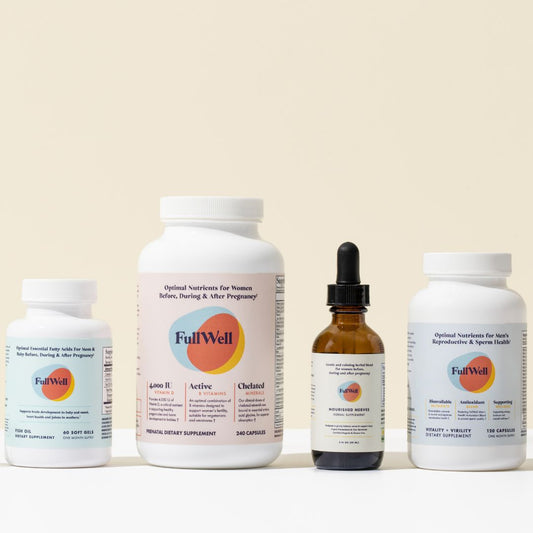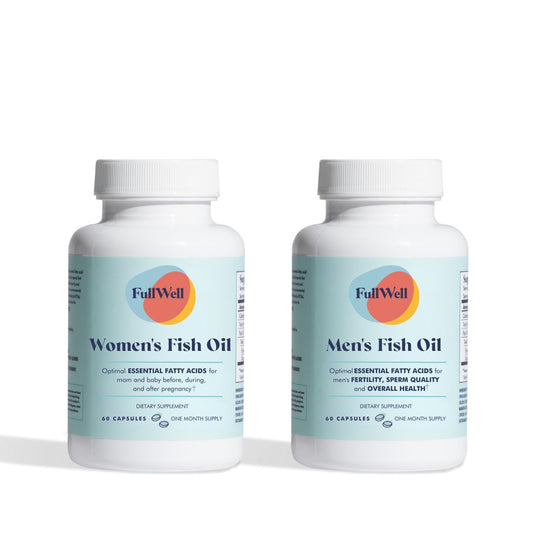Nourishing Egg and Sperm Quality with Ayla Barmmer MS, RD, LDN
Read more

Over the past ten years of gaining expertise in this specialty area, I've seen numerous infertility cases, each with a unique set of factors. With such diversity in individual circumstances, one-size-fits-all approaches to infertility are entirely unrealistic and ineffective (even though those diets and supplement plans are a dime a dozen)!
There are, however, a handful of issues that I've seen arise over and over again when reviewing clients' diets and total nutrition that I want to share with you to help in your efforts to conceive, enjoy a healthy pregnancy, and, ultimately, have a healthy baby.
I define a "fertility diet" as a method of taking in specific nutrients to help improve the balance and function of the whole body, allowing the reproductive system to thrive. An effective fertility diet will:

Swap your low-fat yogurt out for its whole-milk counterpart (preferably raw, organic, from pasture-raised cows, too!). The most extensive study on fertility showed that full-fat dairy supports fertility while low-fat dairy inhibits it. Why? Natural hormones are found in the fatty and skim parts of the milk. Together, they are complementary, but alone, they can throw our hormones out of balance. Bottom line? This is another case proving that food is most beneficial in its natural, unprocessed form. That is something you can count on being true now and forever.
Some thrive on vegetarian and even vegan diets. However, most people will benefit from the bioavailable, balanced protein and other nutrients in animal protein (think eggs, dairy, meat, poultry, and fish). Essential fertility nutrients like Vitamin A, E, coenzyme Q10, choline, DHA, and more are either not found in plants or are not as easily converted into a form our bodies can use. This might seem counterintuitive because we know plant-based diets are hugely beneficial. Keep getting in all those colorful plants, but don't purposefully omit animal products to improve your fertility: it does the exact opposite for most.
Perhaps your doctor has told you to lose weight to improve your fertility, so you've slashed calories to drop a few pounds. While some weight will come off quickly, your metabolism will suffer. Why does this matter? Our metabolic system and our reproductive system are reciprocally regulated. Simply put, both systems talk to each other. When our metabolism slows, reproductive functioning is turned down. Our body is doing exactly what it is designed to do, but it is not helpful for fertility!
This is where the bulk of the processed vegetable oil comes from in our diet, which is pro-inflammatory. In other words, they damage sperm and egg quality and all the fluids needed to conceive.
Fat is a crucial building block for our hormones and helps deliver fat-soluble, fertility-supporting vitamins like A, D, E, and K to our bodies. Additionally, fat regulates blood sugars, which are suitable for metabolic functioning and reproductive function.
